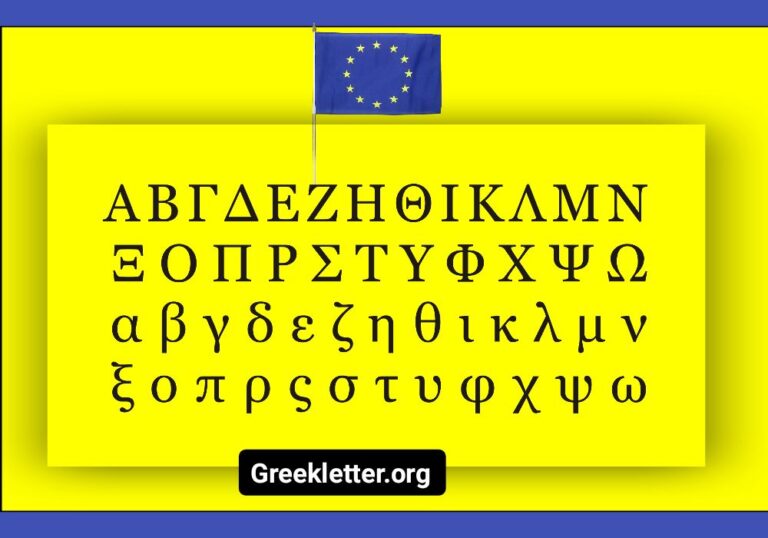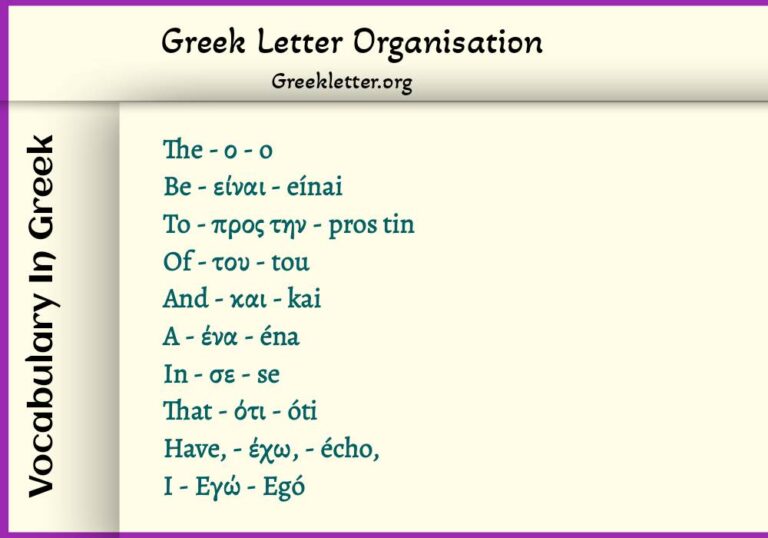Good Morning, Night, Evening & Day In Greek Language
If you want to learn to say Good Morning, Night, Evening, and Day in Greek Language, Greeketter.org is the perfect resource.
|
|
|
|
Audio
| Video |
|
|
You can find detailed lessons and articles on our website that will teach you everything you need to know about the language.
In addition, we also offer a variety of resources that can help you practice what you’ve learned so that you can become fluent in no time.
In Greek, there are seven different ways to say good morning, good evening, good night, and good month.
|
Kalimera: Saying Good Morning in Greek
“Kalimera, kala manna” (Good morning) is the traditional Greek good morning greeting. Although the exact words may vary from region to region, the sentiment behind it is always the same: wishing someone a happy and prosperous day.
Whether you’re waking up alone or greeting someone else as they wake up, a simple “Kalimera” will set the tone for a great day.
Though it may seem small, saying good morning in Greek can delight those who know how to do it.
Here are the steps:
- Hold out your hand, palm up.
- Say “Kalimera” (ka-lee-mer-a).
- Smile and give the person you’re greeting a little wave.
- Keep your hand outstretched until they respond with “Efharisto” (eh-fa-ree-sta).
- When they say “Apo tou?” (ah-poh toh?), reply with “Amanete” (ah-mah-nayt-e).
|
Kalo Mesimeri: The Time of Day You Didn’t Know You Were Missing
You are actively supposed to use it from 12:00 until 15:00 pace toward lunch. Kalo merisimeri means a good meal and a nice siesta, referring to noontime.
Good afternoon to you! In Greece, saying good afternoon, we are actively supposed to use it from 12:00 until 15:00 toward lunch. Kalo merisimeri means a good meal and a nice siesta, referring to noontime.
Good afternoon to you! In Greece, saying good afternoon when meeting someone face-to-face is customary. You can say either καλή σεβασμός (kali sebasmos) or καλή προσωπικότητα (kali prosopitiki tiara).
When saying “Kalo mesmeric,” it’s customary to say “hello” first and then the person’s name. For example, if someone is named John, you would say, “Hello, John.” If someone is unnamed, you would simply say “hello.” Here are other ways to say “good afternoon”: meeting someone face-to-face is customary. You can say either καλή σεβασμός (kali sebasmos) or καλή προσωπικότητα (kali prosopitiki tiara).
When saying “Kalo mesmeric,” it’s customary to say “hello” first and then the person’s name. For example, if someone is named John, you would say, “Hello, John.” If someone is unnamed, you would say “hello.” Here are some other ways to say “good afternoon”:
|
Kalo Apogevma: Late Good Afternoon In The Shade
From about 16-17:00, it’s appropriate to use (Kalo apogee) Good afternoon. This may be used up to around 18:00, considering summer when daylight is still on.
Kalo apogee means “Good Afternoon” in Greek and is the first night of the lunar month. It’s considered an important night when new life is born.
There are many ways to say good evening, but the most common is simply saying “Good evening.” Others might say “Hello,” “Good night,” or “Have a good evening.” Whatever you choose, make sure it’s polite and respectful.
Kalinichta Good Night In Greek: The Best Way To Say Good Night
Kalinichta (καληνιχά) is the best way to say goodnight in Greek. It means “good night” and is usually used when saying goodbye before bed. Kalinichta can be translated as “sleep well.”
As you drift off to sleep tonight, Kalinichta will keep you safe and sound. Here are the best ways to say good night in Greek:
|
Departing A Group of Peoples, in Greek: How to say ‘kalispera’ correctly
When a group departs from one another, there is often an exchange of farewells and pleasantries. Sometimes, these exchanges can be difficult for those referenced from a different country or culture.
This article will list words and phrases you can use when departing a group of people in Greek. Below is the translation for each word and phrase and the English equivalent.
The Greek word for “departing” is “kalispera.” The verb form of this word is “kelispenai,” which means “to leave.
Why ‘Chronia Polla’ is the perfect way to greet someone in Greece
Χρόνια Πολλά’ (Chrónia Pollá’) Meaning is many happy returns! And happy birthday.
When we experience a happy event, the most common wish that comes to mind is! [chronia polla] Many years! This greeting fits almost all joyful events and will make everyone happy. Saying this wish aloud can bring peace of mind and happiness.
Greetings from Greece! If you’re ever in the country, say “Chronia Polla” to anyone you meet. It’s the perfect way to show appreciation for their country and culture. The phrase means “Happy Bird,” it’s a reminder that Athens is home to some of the world’s most beautiful birds.
Kalimera! Wishing you a month of good health and happiness
Kalimera! Wishing you a month of good health and happiness. Here’s to hoping that this month is as healthy and happy for you as possible. May all your dreams and aspirations come true, and may you always be surrounded by love.
Conclusion Points
The Greek language has four words for greeting someone at different times: Good Morning, Night, Evening, and Day. Each word has a different meaning and is used in different situations.
Good morning is used when greeting someone early, typically before noon. It can be used both formally and informally.
Night is used when greeting someone in the evening, typically after sunset. It is generally used informally.
In conclusion, Greekletter.org has been a great help in learning the Greek language. The site provides good morning, night, evening, and day in Greek language lessons, which are helpful.
Please leave a comment below if you have found this article to be helpful. Thank you for reading!
FAQs
1. How do you say Good Morning in Greek?
In Greek, Good Morning is pronounced as Kalimera.
2. What is the translation of Good Night in Greek?
The translation of Good Night in Greek is Kalinikta.
3. How do you greet someone in the evening in Greek?
To greet someone in the evening, you can say Kalispera, which means Good Evening in Greek.
4. How do you wish someone a good day in Greece?
To wish someone a good day, you can use the phrase Kali mera, which translates to Have a good day in Greek.
5. Is it difficult to learn basic greetings in the Greek language?
No, learning basic greetings like Good Morning, Night, Evening, and Day in Greek is relatively easy with the help of our resources.
6. Can I find audio pronunciations for these greetings on your website?
Our website provides audio pronunciations for all the greetings and phrases we offer.
7. Are there any additional resources available for learning the Greek language beyond just greetings?
Apart from basic greetings, we offer comprehensive lessons and resources to help you learn conversational Greek and more advanced topics.
8. Can you interact with other learners or native speakers on your platform?
Yes, our platform provides opportunities for learners to engage with each other and connect with native speakers through forums and interactive activities.






